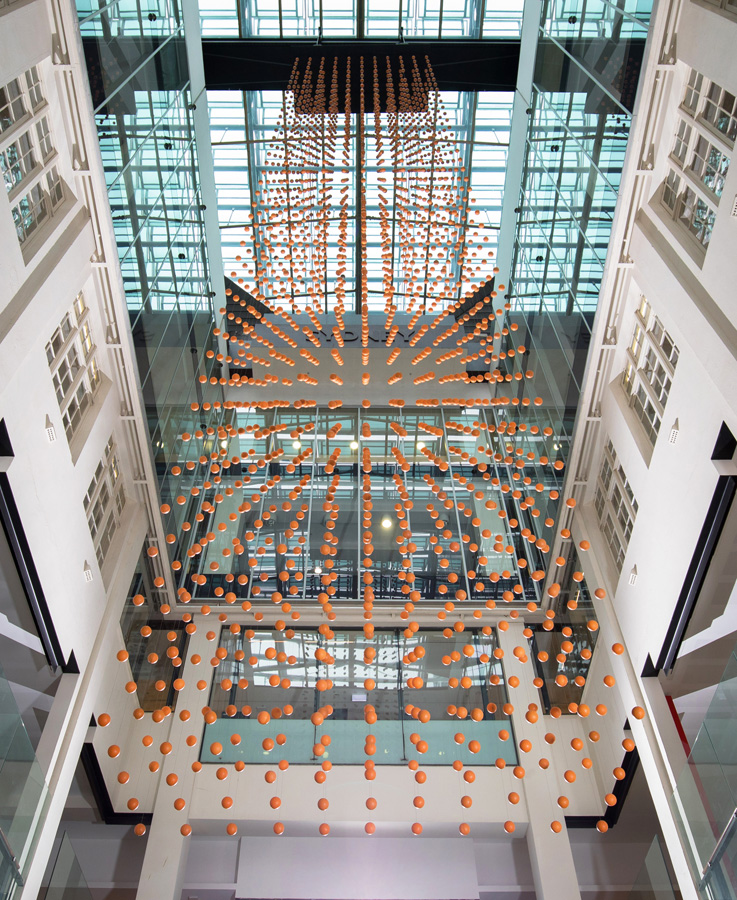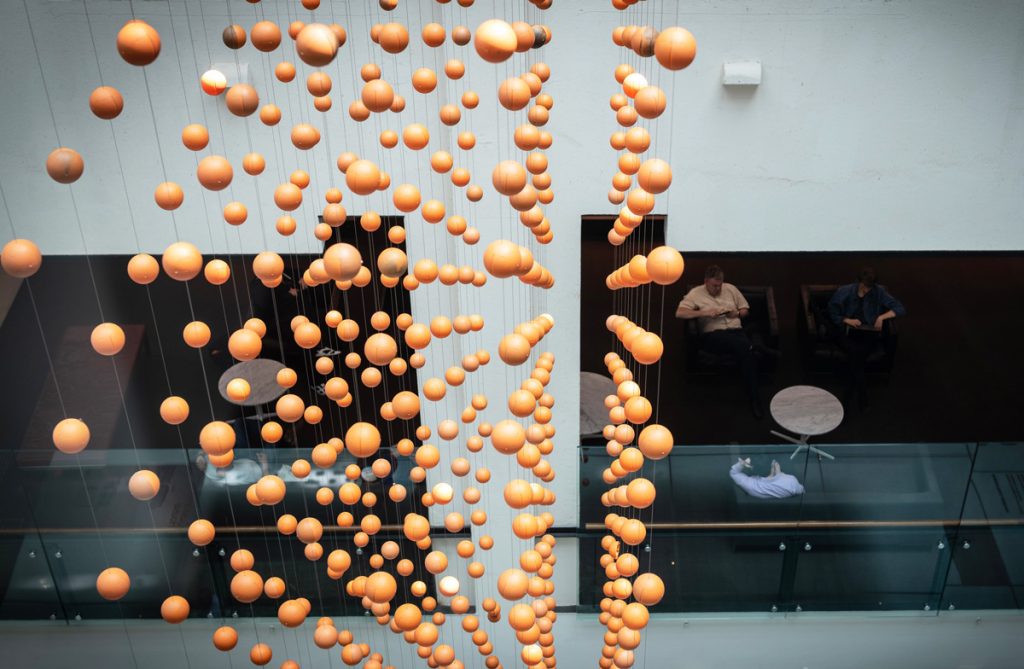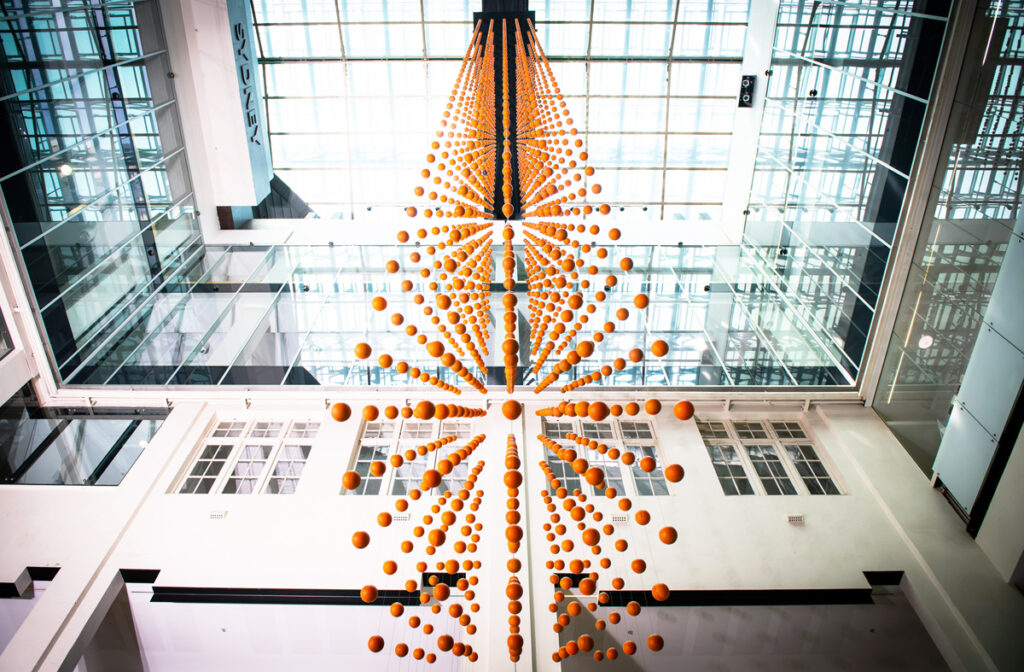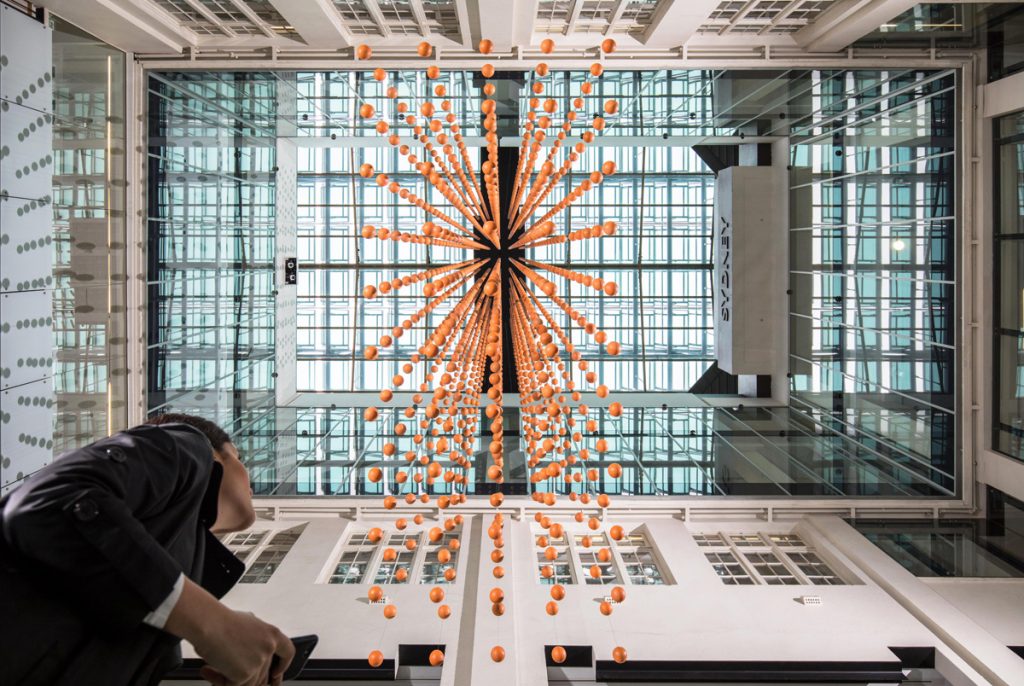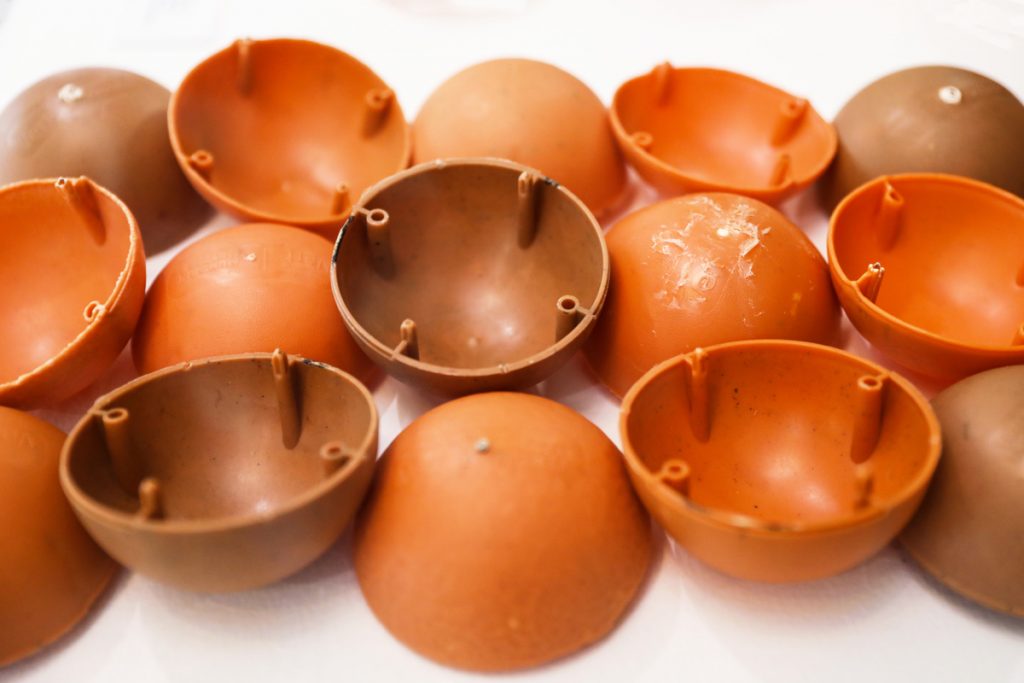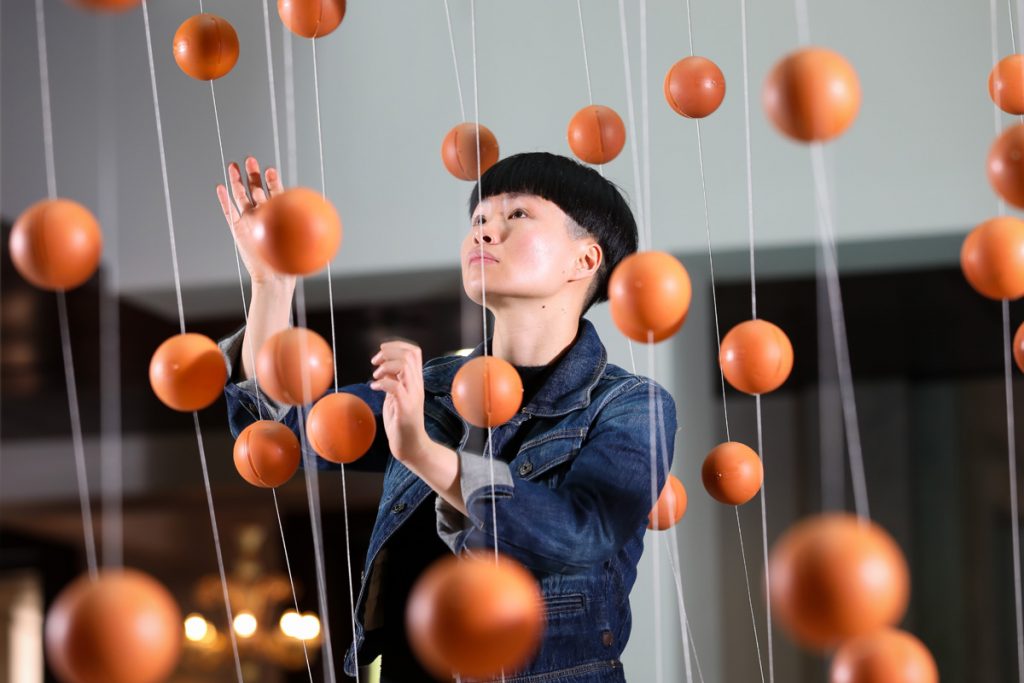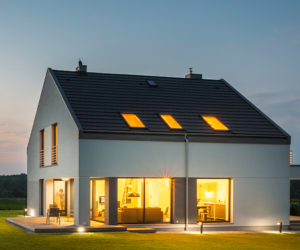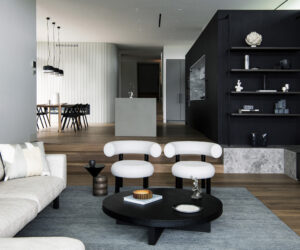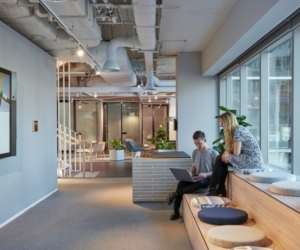Ocean plastic remnants turned into Sydney art installation
The 24-metre tall installation is designed to look like a neatly arranged cemetery, with 2255 spheres in all shades of orange to hold the ‘ashes’ of wasted orange peels. These round ‘orange urns’ are made from 120 kilograms of ocean plastic remnants collected from the Great Barrier Reef, Australia.
Produced by creative studio Mundane Matters and presented by City of Sydney Art & About Sydney, Wasteland makes a powerful statement about how human consumption impacts the environment, through an intriguing viewing experience.
Concept
Mundane Matters’ Creative Director Danling Xiao said the inspiration came from a conservation experiment in Costa Rica, where 12 000 tonnes of wasted orange peels were dumped on a desolate site, resulting in a vibrant forest 15 years later.
“I am inspired by the abundance of nature and the way it generates growth using existing resources. If we look at the way we have been consuming, especially in the past few decades, it is against nature. I think the (Costa Rica) orange peel experiment is an inspiring example of how waste can transform our environment positively, rather than doing damage to it.”
Methodology
Mundane Matters worked with Eco Barge, an organisation that collects marine debris near the Great Barrier Reef. In the past nine years, Eco Barge has cleaned up more than 180 000 kilograms of marine debris from the region. 80 turtles have been saved since the organisation launched the Whitsunday Turtle Rescue Centre in May 2013.
The 120 kilograms that was used in Wasteland was only the remnants from Eco Barge’s one-week trip to the region, where they’ve collected more than 2000 kilograms of marine debris, in seven days traveling back and forth from their base to the islands.
The debris was a mix of plastic bottle lids and bottle necks, noticeably a broken baby chair, a broken kettle and countless microplastics which are extremely harmful to marine life. The material was sorted, ground down then melted before being moulded to form the single orange spheres 4510 times (the spheres are designed in two halves).
The production was a result of days of experiments. Marine plastic is a challenging material to work under commercial machinery, due to its brittleness because of the degradation from the sun and the marine environment. The sphere was designed with minimal mechanism to allow the two halves to be pressed together, while a small percentage of virgin plastic was added to prevent breakage when installing. To use the maximum amount of plastic, the melting point was adjusted to between 240 and 270 degrees Celsius to melt down almost all types of plastics collected and the foreign matters that are attached to them.
Working with a height at 24 metres, the installation took 15 people more than 20 hours to prepare and install. Except the wires, the installation infrastructure was constructed from reused materials sourced from online marketplace and local reuse centre. The spheres were first heated up, attached to strings, glued to fix on wires; installed and raised up by layers.
Team
This project has involved 10 Australian-based businesses and almost 30 people including Mundane Matters, award-winning industrial design house Vert Design, artist Daniel Hollier and his practice The Operative, local injection moulding manufacturer Mastroplas, a team of videographers, photographers and aerial cinematographers, riggers, wire manufacturer and volunteers, as well as the City of Sydney’s Art & About Sydney team and the Customs House team.
Xiao says, “The way this project works is in itself a statement. If we really want to make a change, it needs all of us to work together. The collective effort will bring the best for the environment and humanity.”
Through an optimistic shade of orange, Wasteland hints at the hope we have to solve these problems. It reminds us of three vital principles: reduce, reuse, recycle. As the 2255 hung objects suggest the whole is greater than the sum of its parts. We need to tackle these problems together.
About
Mundane Matters designs digital media and experiences aimed at inspiring positive environmental and social change. The studio has received global attention via social media for a series of fruit and vegetable sculptures raising awareness of food waste.
Mundane Matters is founded by Chinese-born Australian designer Danling Xiao.
Wasteland is part of the City of Sydney’s year-round Art & About program of events and temporary art projects in unusual spaces throughout Sydney city.
Instagram: @mundane_matters
Facebook: mundanematters
